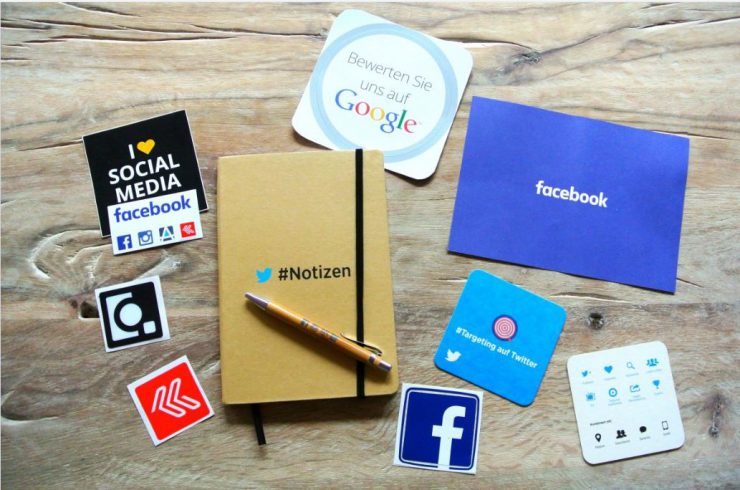We’ve all been there. We’ve set up our usual email drip campaign, scheduled social media posts, and purchased both traditional and digital ads to promote our next event. But ticket sales are flat or (even worse) down, and your boss is asking what else you can do? Don’t stress. There are plenty of other marketing and advertising opportunities to leverage. Chances are there are channels that you haven’t considered. Now is the time to do so.
Keep in mind that every marketing channel you choose must reach your target audience and be brand right for your event. An effective marketing channel will sustain your integrated promotional campaign and produce great results for your event.
That being said, if everything you’ve always done is not producing results, you may need to think outside of the box a little bit. This is the time to open your mind and be creative. Ask yourself, what marketing channels am I overlooking? Why? 9 times out of 10, there is no good reason to at least consider the opportunity.
Here are 5 marketing channels that we recommend as excellent marketing channels for any business event.
You may think of LinkedIn as a networking or job searching website, but it’s much more than that. LinkedIn is the top channel used by B2B marketers to distribute content. If you need to build buzz for your event in a business community, LinkedIn is a great digital channel to use.
The LinkedIn Events feature provides an easy way to create and promote business events. When you create an event on LinkedIn, you can then use it to connect online with other members to invite them to the event. You do this by sharing the event on your LinkedIn feed or by sending a direct message. You can also share the event on linked Twitter and Facebook accounts.
Once a connection has accepted an invite to your event, they can then share the event with their connections. They can also see a list of others who will be attending the event. The event posting also provides a place for an interactive discussion among attendees and invitees. This is an excellent feature that can promote personal interaction and relationship building even before your event starts.
This powerful social media site is the place to be for business interactions and events.
Podcasts
Podcasts are hot. In 2019, a study at Bitkom showed that 22% of all people listen to podcasts regularly, which is up from 14% in 2016. Also, within podcast listeners, 80% do not mind advertising in a podcast. Most importantly, 13% report that they have bought a product because of a podcast. With a smart strategy and an impactful message, promoting your event on a podcast can be a huge win.
The ability to hyper-target your marketing strategy through a podcast is one of the main benefits of using this marketing channel. Make sure to find a podcast that your target audience listens to. For example, if you are promoting a digital marketing conference, find a popular podcast focused on digital marketing techniques such as Neil Patel’s Marketing School. Record an ad that addresses a common pain point listeners deal with and offer your event as a place for solutions. Make sure to include a strong CTA to visit your website to purchase tickets.
If you don’t have advertising dollars available, the alternative is to offer a speaker or partner who is considered thought leaders to be interviewed on the podcast. This unconventional PR technique has become very effective lately as competition for media attention increases and with the right representative can be even more impactful than a 20-second ad.
Webinars
Webinars lend themselves very well to event marketing because they can be a sneak peek of the benefits or value your event will provide. You may think that webinars are hard or expensive to produce but they don’t have to be. It could be as simple as hosting a Facebook live stream.
Webinars are inherently a lead generation tool because they provide valuable information in order to drive interest in a product. When you deliver relevant content, you build credibility for your event. Webinars can also offer real-time interaction with your prospective guests that can help to build a bridge to conversion.
Invite your keynote speaker or a sponsor to participate in a webinar. Leverage the partnerships you are building for your event to broaden the reach of your potential audience. This not only gives you more ideas for content, but it can also lend authority and value to your brand. With a well-attended and interactive webinar, you can drive excitement and create a buzz for your event. Even better, when you post a recording of your webinar on your website or YouTube page, the buzz can grow exponentially as more people watch the recording.
Google My Business
Google may not seem like an overlooked marketing channel but Google My Business (GMB) definitely is. Anyone with a website can create a free GMB account. SEM and SEO will drive consumers to your website but many experts are theorizing that Google searchers are using a GMB page as a website and never clicking over to a business webpage. This is because an optimized GMB page can be just as robust and informative as a website.
GMB pages work best when the business exists in a specific location. It shows up in Search, Local Pack, and on Maps. This might be a barrier for some event planners who contract with venues to host events. That does not mean that you should not list your event on your company GMB page. You just need to be crystal clear as to the location. You can either use the Events feature or the Posts feature to promote your events on your GMB page. Posts are easier. Google Posts are similar to a social media post. They show up in the Knowledge Panel and on Google Maps. You can use photos, emojis, and hashtags in Posts. Always make sure to link to your ticket sales page.
You can also add your events to the Knowledge Graph which is below the Post section. These events are scraped from third-party sources like Eventzilla or your own website and connected with structured data markup. You may need a developer to set this up.
If you are using a certain venue, ask your contact to place your event on their GMB page. If your speakers and sponsors have GMB pages, it’s also a best practice to ask them to post the event as well.
The more places your event shows up on Google, the more chances you have to build brand awareness and sell tickets.
Your Existing Customers
Happy customers are your best marketing tool. According to Esteban Kolsky, 72% of customers will share a positive brand experience with 6 or more people. That’s a free promotion that could turn into lucrative ticket sales. It’s imperative to not only create happy event attendees with an outstanding event experience but also incentivize these satisfied customers to become brand ambassadors for your event.
There are many ways to do this. You can establish a referral program and offer complimentary event tickets, a discount on services, or a percentage of sales for each referral who buys a ticket. You could tap into their creativity by encouraging your customers to create unique content such as event photos or videos via contests and challenges. When your customers post their content and share with their network, it will increase your online engagement, web traffic and hopefully ticket sales. They are indirectly promoting your brand. At the very least, ask your happy guests to write positive testimonials to use in marketing.
It’s crucial to be open to new marketing opportunities at every stage of the event planning process. You need to meet your targeted audience where they are. If they move, so must you. The most dangerous place in business is the status quo. Don’t let apathy harm your bottom line







